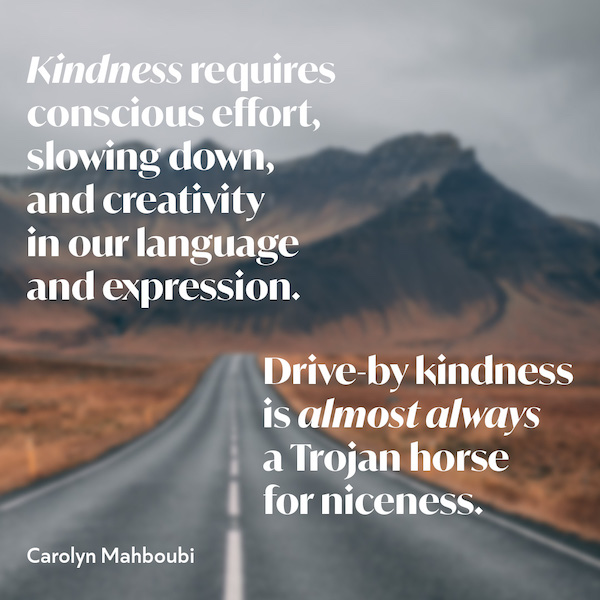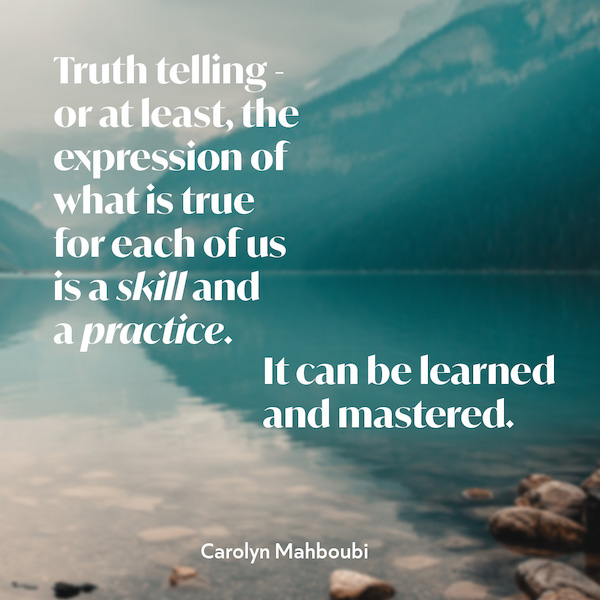Words are powerful and distinctions help us turn words into roadmaps for action.
If you don’t already have a bias for action, my work won’t help you.
But if you are or want to become an action hero, you’ll want to become obsessed with words, their meanings and ensuing distinctions.
Distinctions are also what make us situationally smarter.
I grew up in Los Angeles. I have one word to describe the white thing that falls from the sky — snow. But an Inuit child learns so many distinctions around snow and has a different word for each. An Inuit can differentiate between soft snow, blizzard snow, on the ground snow, slushy snow, and many other states of snow.
Who is more situationally smarter? The Inuit or I? And should you be in Alaska, who would you trust more as a guide?
My distinctions are both created by myself and gathered from others and curated for my personal and professional use. You’ll want to collect your own based on what speaks to you and helps with your unique and bespoke transformation.
One distinction that has been hugely helpful to me and a beacon in times of confusion is the difference between niceness and kindness.
Exceptionally, I’m addressing only women here when I ask who amongst us wasn’t raised to be a nice girl?
While the boys around us were encouraged to be strong, brave and action oriented, most of us girls were encouraged to be “nice”.
As a child, I wanted to play with boys and do things rather than just look pretty and be nice. And although I made every effort to be nice, it was often difficult for me to figure out the thin line between being nice and being authentic and truthful.
This impossible choice between being nice or honest only worsened as I grew older. As a child it felt like an unfair rule applied only to girls, but as an adult it became a straitjacket — one that only I now kept locked around myself.
You see, it is important for me to be a nice person. And if the alternative to nice is going to be perceived as thoughtless, jerkish, or mean, well, …
I still will take nice any day of the year.
In my youth, most of my efforts at being nice and honest resulted in feelings of anger, defensiveness and shame. It was only once I began working with my own coach that I learned to let go of “nice” and choose “kind”.
And I still sometimes choose niceness over kindness, but now the choice is made deliberately and consciously.
In the most simple terms, we are often and usually in service to ourselves when we choose to be nice, but in a deeper level of service and ultimately love towards the other when we choose to be kind.
Make no mistake — being kind is not easy.
Kindness requires conscious effort, slowing down, and creativity in our language and expression. Drive-by kindness is almost always a Trojan horse for niceness.

Kindness lives on a plane, not a line. It has many dimensions that we need to consider and weigh before taking action.
Kindness is not for the faint of heart or those in a hurry. And it’s always, always, a choice.
Here are a few real life situations that demonstrate the difference between the two:
1. If someone we have no relationship with has spinach in her teeth, niceness will have us not saying anything to her. Afterall, nice people don’t talk to folks they don’t know and well, it’s uncomfortable to tell a stranger something like that.
“What will she think of me??”
“Yeah, I don’t want her to think I’m rude, so I’ll just keep my mouth shut.”
We’ve all been there, right? Kindness would direct us to find the space and the skillful language to let her know the truth.
2. I went on a date with a lovely man. All was well until a few hours into the easy conversation he uttered an anti-semitic comment. I chose “niceness” and finished the date while making it clear that I was not available for another date. When he circled back to me to understand the change in my energy and behavior, I chose not to tell him the truth. I chose to serve myself and not him. I was not being loving, kind and in service to this man. And that was okay with me. Choosing kindness is always a choice and often a gift to the other person. Choose carefully and according to your own personal values.
3. Choose a Coach, therapist and mentor who is committed to kindness and not niceness. We all need to hear the truth, albeit lovingly and with care. If “the truth” when shared by your professional helper feels like the Twin Towers collapsing on you, that person has not done the internal work of learning the nuances of kindness and they are neither being nice nor kind.
4. Couples who hold hands and present themselves as a bundle of love yet make witty but sarcastic jokes about each other may see themselves as being a nice couple. But they are not serving the other or their relationship when they communicate in this way. Kindness requires them to learn a whole new way of sharing their thoughts and feelings. Kindness says, “you’re worthy of my efforts”. Niceness says, “I don’t have time for you.”
This is not an open invitation for all of us to go out into the world and blurt out our truth!
Truth telling — or at least, the expression of what is true for each of us is a skill and a practice. It can be learned and mastered.

But knowing the difference between being nice and being kind will shift your starting point and put you on a road to a different destination — a place called Win/Win!


